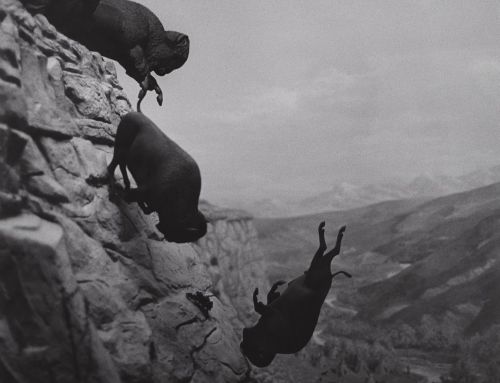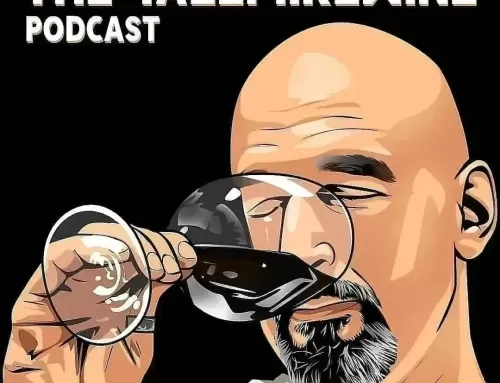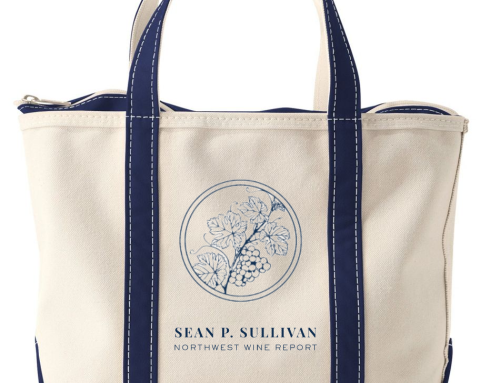
See a previous post on Initiative 1183 with additional details about the initiative’s contents here.
Volume Discounting
What it means: Currently the wholesale cost of wine is fixed regardless of how much one buys. This means that retailers that buy a single bottle and those that buy ten cases pay the same amount.
Initiative 1183 would allow wineries and distributors to adjust the wholesale price of the wine based on the volume sold. If retailers agree to buy a greater volume, they can potentially get or negotiate a lower price. For example, wineries could set different wholesale prices for one case, five cases, ten cases, and a pallet.
Note that is would not be the case for beer or spirits – just wine (NB: See correction below). Some believe the reason for this was an unwillingness to take on several large lobbies simultaneously.
Why Costco Cares: Costco obviously brings a whole lot of buying power. This would allow Costco and others to use their buying power to obtain lower prices based on the amount they purchase.
Why Some Are For/Against: Proponents of volume discounting says that it just makes sense. Why shouldn’t they be able to negotiate a lower wholesale price if a retailer is willing to buy a larger volume? In their view, the current laws restrict their ability to do business.
Opponents of volume discounting say that fixing the wholesale price allows smaller wineries to compete on the same playing field as the big boys. Taking it away allows companies like Costco to dictate price, something they can’t afford.
The logic is as follows. Let’s say there are two producers making a wine that costs $21 to produce and that they both sell for $25 wholesale. Producer A makes 200 cases of their wine – a common amount for many of Washington’s small wineries. Producer B makes 20,000 cases of their wine – a common amount for many California wineries.
Costco says to both producers that it will buy all of their cases of wine, but only if the producer agrees to a wholesale price of $22. Producer A has two choices: sell the wine to Costco and make $200 total or walk away and look to sell the wine elsewhere for $25 wholesale. Producer B can do the same but stands to make $20,000 on the sale to Costco.
Opponents say that if they did give Costco volume discounts, they might go out of business as they wouldn’t make enough profit. Conversely, if they don’t give Costco the volume discount, they might have trouble selling the wine elsewhere given Costco’s discounted prices on its wines.
Proponents say not allowing them to offer volume discounts is restricting their ability to do business and potentially putting them in jeopardy. Let’s say Producer A does decide that he wants to sell all 200 cases for a $200 profit. Current law prohibits him from doing so.
What It Means for Consumers: Volume discounting will allow Costco and other large companies to both increase their margin and pass lower prices along to consumers. This gives them a competitive advantage. Consumers can expect to see lower prices on some of the wines that Costco and companies like them carry.
In my opinion, consumers can also expect to see a shakeout in the wine industry as large wineries from California, Washington, and elsewhere take advantage of the ability to offer volume discounts at Costco and large grocery outlets. Some Washington wineries will be able to survive in this environment. Some wineries will not. I also expect that the selection of wine at large grocery stores may decrease as companies focus on brands they can buy with volume discounts.
Some will argue that there will always be a place for small, boutique wines and wine stores even with Costco offering its discounted prices. Costco obviously only offers a very limited number of brands. However, if these wineries and wine stores can’t compete on price with the wines Costco, Kroger, and others offer, don’t expect them to last too long, especially in a down economy.
Proponents say that this is the way capitalism is supposed to work where the strongest survive; opponents say that this is what has led to our chain store society where mom and pop stores can’t compete.
Feel free to comment below on what you believe the effects of volume discounting will be for you/your business.
Next up on Initiative 1183, a look at another wine-specific aspect of Initiative 1183, central warehousing.
CORRECTION: According to Section 119 of Initiative 1183, volume discounting would be allowed for spirits. It would not, however, be allowed for beer as indicated above.







Thanks for highlighting some lesser-publicized parts of this initiative, Sean. Looking forward to the rest of the series.
My sense is that you are an opponent. There is also an organization of 'family wineries' that are proponents. As a voter, who wants more efficiency and revenuw, but not at the expense of hurting local wineries, which are treasured here in the state.. what do you advise?
Anon, I'll be posting my own position on 1183 in detail next week in a separate post. In preview, I am anti-initiative, pro-privatization, anti-assisting big companies – whether they are wineries, grocery stores, or wine/liquor stores – at the expense of the small. More next week!
Shall we talk "case break fees" and the resulting increase in prices to the consumer and decrease in selections that will result?
Typically, first volume discount occurs at 12 bottles, otherwise a $2-$3 charge per bottle to the retailer/restauranteur for orders of less than a case. The purchaser is either forced to take a full case (something not every wine shop has space for) or be forced to sell the wine for a higher price than their competitors. Either case, it's bad for the consumer.
Second, when you go into these 10K+ ft2 retailers are you impressed with their wine selections? Probably not, expect the same for your spirits…nothing but the big and the bland. I would like my liquor store to be like my favorite wine stores; small, knowledgeable, and diverse. This initiative certainly doesn't seem to favor such a situation. A step in the right direction, but not with the consumer in mind.
I could support this, if it did away with the give away to the large retailer
Will the wholesale discount feature really affect the tiny wineries at all? By this I mean that Costco is unlikely to be interested in a winery that produces, say, 500 or fewer cases, simply because there just isn't enough product to stock their shelves, even if they bought up the entire inventory. I do agree that this is an issue for the larger boutiques, e.g., a winery that turns out 3,000 cases of a supermarket-friendly Riesling or Cabernet blend that has to decide whether or not to engage in a discounting race to the bottom with the likes of Columbia Crest. Not a battle the little guy is going to win.
Let me preface my comment by stating that I work in a large wine retail shop in a state (Florida) that allows volume discounts. Here's my take: I understand the concerns that come with volume discounting. I disagree, however, that volume discounting means "doomsday" for many small wineries. Companies, such as Costco, aren't on the whole interested in the smaller wineries. They want good pricing on high-production, quality wines that they can offer their customers at a great price, make money, and move major volume.
I work for a company that has over 100 stores in Florida and we are every bit as dedicated to offering wines (some from Washington) made is as little as 25 case amounts all the way up to the major "big box brands." So to suggest that retailers would abandon smaller wineries and selection would suffer is just silly to me, unless that's how the wine shops do business in Washington. I honestly don't know.
What I do know is that any saavy retailer who cares about being competitive and wants to have the best selection possible for their customers will use a volume discount to bring quality wines at great prices to value-seeking customers while continuing to offer a selection of smaller, boutique wineries to appeal to that segment as well. We do it. Our competition does it. And there's no reason for this part of the initiative to hurt consumers if the retailers do their part. Just mho. :)
Dave, that's a good comment on the state of Florida retailing, and I suspect that if the initiative passes here in Washington that we'll move toward that model, but I wonder how well acquainted you are with the current model in Washington. I run a small neighborhood shop in the inner city in Seattle, so let me tell you a bit about how we work.
We have a 900sf shop, and we stock about 1250 selections. We're packed with wine, to put it mildly. We're extremely value-focused as well. Of those 1250 wines, we only buy about 10 or 15 of those in quantities as large as a full case at a time. Most of the rest we buy three or six bottles at a time. If this initiative were to pass and we erer to get discounts at a 1 case volume, we would most likely convert all our 6-bottle brands to a case at once, but due to operating capital and shelf space reasons, we would likely be dropping about half of our current six-bottle selections. That means we'd probably drop about 100 brands. For the rest of the selection, we would likely still buy the three or less bottles at a time, as we do now, but we would expect we'd have to raise prices on these. I would expect distributors to raise prices on the low-volume brands, as they try to recover revenue lost when they lose margin on the high-volume brands. So, we will adapt and survive, but I would expect both price and selection to get worse for the consumer as a result of this initiative.
I actually think that we're lucky, being located in the inner city. I expect that if the initiative passes,
I don't think initiative 1183 is going to be as much of a game changer as some smaller retailers and wineries fear. Sure, Costco and the other big operators have much to gain with volume discounts and central warehousing. But they are going to leave the smaller operations alone for the most part. If Costco wanted to squash the wine shops they could have long ago. When I owned Esquin (until 1997), it really hurt when Costo undercut us on wines we sold, but we survived. I agree with Dave Malone above that the savvy retailer can use both volume discounts and a selection of boutique wineries to stay competitive. That is what I did when I owned Esquin. By the way, volume discounts is not really new. I made deals with distributors that were under the table which enabled us to be competitive. Initiative 1183 would just legalize what already exists. Wineries seem to be fearful of volume discounts because they think they would be pressured by the big stores into giving them. I agree with Dave again that the big operators don't care much about small wineries. For them, it's all about Kendall Jackson and other big producers. I think the effect on small retailers and wineries is going to be a lot less than they think.
James, thanks for highlighting the issue of case break fees. I had neglected to mention this, and it is an important issue.
Dave Malone, many thanks for providing insights from Florida. I know that Costco here in Seattle has in the past carried a number of small Washington winery brands, usually at a pretty good discount. I'm assuming that the reasons that they do this is because of the strong local wine industry and people's interest in drinking local. I would expect that that would continue if 1183 passes with volume discounting playing a role in the decisions on the wines.
For me, there are two critical, related issues. The first is whether there is a direct pressure on wineries in Washington to lower price in an unsustainable way due to other wineries volume discounting their wines? The second is whether there is an indirect pressure because of the abundance of low priced, high end California (and other) wine on the shelves. Therefore wineries must discount to be competitive and doing so threatens their business.
To some extent, what we have seen the last several years has been a potential example of what a post-1183 world might look like. There has been a large influx of heavily discounted California wine coming onto the Washington market due to CA's large production and the overall poor economy. My favorite example was an $85 Napa Valley Cabernet I saw with a 93 point WS score that, on release, was discounted to $42. Hard for WA wineries to compete with. Obviously there are different factors at play here but has this impacted Washington wineries? I'll let them comment on whether they believe it has.
I do believe that the large retailer/grocery store markets and boutique wine store markets are somewhat distinct. I do believe that there will always be a market for higher end, lower production wines. However, will it be enough to sustain the industry as it currently stands at 740 wineries?
I do believe that Costco's discounting affects people's buying decisions in a number of ways. I have frequently seen people on-line say, "Don't buy it there. Costco has it for a lower price." That does steer people away from smaller boutique stores. Is that impact enough to threaten these stores' existence or do they just need to find different ways to compete?
Rand, a very good point that, to some extent, volume discounting goes on right now. Many people have told me that this takes the form of, "I'll throw in a sample bottle for every case that you buy." This is, of course, illegal. However, who is going to tell? Not the store or distributor that is making the deal. Another winery or distributor that is hearing about this happening? Not if they want to jeopardize their relationship with their retailer. Obviously if it were legal, everyone would be able to get in on the action and be much more aggressive with it. I have no sense of how widespread this is or isn't at the moment, but it's definitely happening.
We usually got one case free for ten cases, sometimes even one on five. The extra cases came in separately, through the back door so to speak. This kind of pricing has been standard in California for decades. No reason why Washington should be an exception. Not because distributors should oppose it. In my day, many of them participated in it because it generated sales. The discounts were subsidized by the wineries and importers, so both we, the suppliers and the distributors benefited. A win-win-win situation.
I suspect much of the opposition to I-1183 is from wholesalers who fear that retailers such as the grocery chains and Costco will make an end-run around the distributors and deal directly with wineries. But not all wineries want do do this. Many need to maintain friendly relationships with their distributors.
Fear is a big motivation in the opposition to 1183. Fear by wholesalers, fear by wineries who worry about how it will affect them, fear by retailers who think they will be threatened by the big guys. The "Protect our Communities" is a huge fear campaign which is really driven by businesses' – big and small – own fears. If the initiative passes, as I wrote before, I think it will not be that much of a game changer for the industry. The big change will be that the State gets out of the liquor business as it should have long ago.
Dave E, very interesting perspective on how these changes would affect your shop. Thanks for sharing them.
Under 1183, will existing small wine shops (less than 10,000sqft) be able to remain open? Will new small wine shops be able to be opened?
Craig, the 10,000 square foot requirement just applies to businesses selling spirits (not beer or wine). Existing wine stores and future wine stores would not be affected. They just won't be able to sell spirits unless they are 10,000 or greater (with some exceptions based on trade area).
A number of posters have maintained that Costco isn't really interested in small wineries. Well we produce less than 4,000 cases a year, spread out between a couple of brands and almost 2 dozen skus. We have a wine in several Costco stores right now that we only made 400 cases of. Could we offer it at a lower price? NO. Could we live without the sales to Costco? YES, but in this economy it would really hurt. I'ts not easy moving those over $35 wines, no matter how great the quality.
Anon 10/28 1:03pm, I am not a Costco shopper but the few times I have been there with friends I have certainly seen a number of smaller production wines from Washington. I have been surprised by the comments that Costco has no interest in these wineries and that Initiative 1183 will therefore have no effect on them.
Also, I added your comment to the discussion here as well to make sure people saw it:
http://www.wawinereport.com/2011/10/why-i-am-voting-no-on-initiative-1183.html
It is a rare thing to see a wine at Costco that you also see at an independent retail shop. Most small wineries that sell to Costco do so only with wines that they do not sell to other retailers – close-outs, old vintages, whole lots, etc. Retailers whom I know would stop selling ALL my wines if I ever sold to Costco a wine that the retailers also sell, because Costco almost certainly would be selling that wine at a lower price. Thus, even for (intelligent) small wineries, there really is no competition between Costco and independent retailers. Fear about the potential effects of I-1183's passing are simply fear of the dark.
I was in the Tacoma Costco today and did a quick check of the wine bins, 30 Washington wines, including OS, Dunham, Patrick Ryan, Novelty Hill, Cougar Crest, Kestrel, Vin du Lac, and others, as well as Ste. Michelle (Eroica at $15.99 and various single-vineyard bottles). It can be instructive to look at vintage dates, as Costco is often a choice for returns. deLille has been at Tacoma Costco with red and white Chaleaur Estate and Doyenne bottlings (returns from Florida, I believe). Will these choices be here if liquor comes in? Don't know, but right now, Costco buys direct from many Washington wineries, and gives mass exposure to quality local producers. A couple of pallets sold at a bit less than what a distributor paid is worth more that a couple of pallets returned from out of state because it didn't say grown in California. I believe quality wineries will survive with or without 1183. If it passes, it may be much harder for Washington's specialty wholesalers and retailers, but time will tell.